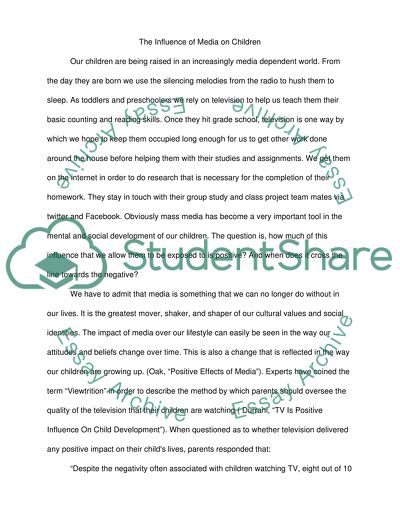Cite this document
(“The influence of media (such as video games, violent television, etc.) Term Paper”, n.d.)
The influence of media (such as video games, violent television, etc.) Term Paper. Retrieved from https://studentshare.org/miscellaneous/1595333-the-influence-of-media-such-as-video-games-violent-television-etc-on-children
The influence of media (such as video games, violent television, etc.) Term Paper. Retrieved from https://studentshare.org/miscellaneous/1595333-the-influence-of-media-such-as-video-games-violent-television-etc-on-children
(The Influence of Media (such As Video Games, Violent Television, etc.) Term Paper)
The Influence of Media (such As Video Games, Violent Television, etc.) Term Paper. https://studentshare.org/miscellaneous/1595333-the-influence-of-media-such-as-video-games-violent-television-etc-on-children.
The Influence of Media (such As Video Games, Violent Television, etc.) Term Paper. https://studentshare.org/miscellaneous/1595333-the-influence-of-media-such-as-video-games-violent-television-etc-on-children.
“The Influence of Media (such As Video Games, Violent Television, etc.) Term Paper”, n.d. https://studentshare.org/miscellaneous/1595333-the-influence-of-media-such-as-video-games-violent-television-etc-on-children.


